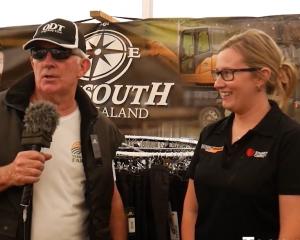
Grazing stock on forage crops between 1 May and 30 September has a significant impact on Southland’s water quality.
Feeding stock on a winter crop or grass behind an electric fence often results in bare, pugged soil, with concentrated amounts of effluent on the soil surface. Rainfall and resulting overland flow can transport topsoil and effluent into drains and waterways. Fortunately this can be substantially reduced by following some low cost good management practices.
Under the proposed Southland Water and Land Plan, requirements for intensive winter grazing have changed from 1 May 2019, and a resource consent may be required for this activity to occur on your property.
If you can meet all of the following criteria and good management practices then your intensive winter grazing can occur without a resource consent:
- Winter grazing does not occur on more than 15% of the area of the landholding or 100 hectares, whichever is lesser and occurs at an altitude below 800m mean sea level
- You have a Farm Environmental Management Plan
- A vegetated strip is maintained in, and stock are excluded from, the outer edge of any lake, river, watercourse or wetland for a distance of at least 5 metres and grazing does not occur within 20 metres of the outer edge of any regionally significant wetland, sensitive water body, estuary or coastal marine area.
These good management practices must also be implemented for intensive winter grazing to be a permitted activity (including maintaining a five metre buffer from waterways):
- stock are grazed strategically on slopes from top to bottom, or a 20 metre ‘last bite’ is left at the base of the slope
- stock are back fenced (excluding sheep and deer)
- transportable water troughs are provided
- supplementary feed is placed in portable feeders
- the mob size being grazed is no more than 120 cattle or 250 deer
- critical source areas (including swales) are grazed last
If these practices are impractical to your operation, you can still graze without resource consent if you increase your buffer from waterways to 20 metres.
In some instances, intensive winter grazing that existed before June 2016 can continue this winter, even if it does not meet the permitted activity rule.
You can contact the consents team at Environment Southland on 0800 76 88 45 for more specific advice on the consent requirements for your grazing. For practical good management advice, talk to our land sustainability team.
By Michael Durand, Consents Manager at Environment Southland















